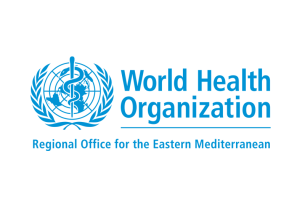In recent years, Syrian doctors have become a critical component of Germany’s healthcare system. Approximately 6,000 doctors, who initially fled the civil war in Syria, now live and practice medicine across Germany. Their expertise and contributions have proved invaluable, and with the ongoing transformation in Syria, the German government is working to retain them, recognizing their role as an indispensable part of the country’s medical workforce.
A Growing Presence in Germany’s Medical Sector
Syrian doctors represent the largest group of foreign-trained medical professionals in Germany. Many of them arrived during the peak of the Syrian civil war, seeking refuge from the violence that devastated their homeland. While initially forced to flee, these professionals brought with them extensive medical knowledge and experience. Many had worked in Syria’s hospitals and clinics before the war, and some had held senior medical positions.
Upon arriving in Germany, these doctors were faced with the challenge of requalifying to meet local medical standards, a process that typically includes language exams, certification recognition, and sometimes additional training. Despite these hurdles, the contributions of Syrian doctors have been significant.
Meeting the Demand for Healthcare Workers
Germany, like many other countries, has faced a growing demand for healthcare workers in recent years. The country’s aging population and an increase in the need for medical care have strained the healthcare system, making it difficult to meet the needs of patients across the nation. Syrian doctors have stepped into this gap, particularly in areas where there is a shortage of medical professionals.
Many Syrian doctors have worked in regions with high concentrations of refugees or in under-served areas, contributing to the welfare of both German citizens and migrants. Their fluency in Arabic has also made them invaluable in helping bridge communication gaps, particularly for other refugees who may struggle with the German language.
A Government Strategy to Retain Talent
As Syria begins to stabilize following the fall of the Assad regime, Germany is focusing on keeping its skilled Syrian medical professionals. Recognizing the importance of their work, the German government has introduced policies aimed at encouraging them to remain in the country. These measures include providing more pathways for professional integration, offering support for career advancement, and creating more opportunities for Syrian doctors to advance in their specialties.
The government’s approach highlights the broader trend of acknowledging the value of migrants in addressing domestic workforce shortages, particularly in healthcare. By retaining these highly skilled professionals, Germany not only supports its healthcare system but also helps Syrian doctors build stable futures after years of displacement and uncertainty.
Contribution to Medical Innovation and Diversity
Beyond addressing immediate workforce gaps, Syrian doctors have enriched the medical field in Germany with diverse perspectives and approaches to healthcare. Many brought with them unique skills and expertise, which have contributed to medical innovation in areas such as trauma care and infectious diseases, shaped by their experiences in conflict zones. Their experiences with healthcare under challenging conditions have brought new insights into managing resource-limited environments, a perspective that has proven valuable in Germany’s hospitals, particularly during the COVID-19 pandemic.
Challenges and Future Prospects
Despite their critical role, Syrian doctors in Germany still face challenges related to integration, such as language barriers, cultural adaptation, and bureaucratic hurdles in recognizing foreign qualifications. Efforts to address these challenges have been increasing, with the government and various organizations offering programs aimed at improving the integration of foreign-trained medical professionals into the healthcare workforce.
As the situation in Syria evolves, the German government’s focus on retaining Syrian doctors is a crucial part of the broader effort to strengthen the country’s healthcare system and ensure that it remains resilient in the face of growing demand. In doing so, they are not only supporting the health of their population but also providing a long-term solution for many Syrians who have found refuge in Germany.
Conclusion
The integration of Syrian doctors into Germany’s healthcare system is a testament to the positive impact that migration can have on both individuals and the societies that welcome them. With the growing demand for medical professionals, these doctors have become an essential part of the healthcare workforce, and their expertise is increasingly recognized as indispensable. As Syria’s future remains uncertain, Germany’s efforts to retain these skilled individuals reflect a forward-thinking approach to addressing health sector challenges while fostering social inclusion and cultural diversity.
References:
- German Federal Ministry of Health (BMG). (2020). Healthcare in Germany: Challenges and Opportunities. BMG. Retrieved from: [https://www.bmg.bund.de/healthcare-system]
- The World Health Organization (WHO). (2018). The Role of Refugees in Strengthening Health Systems. WHO. Retrieved from: [https://www.who.int]
- Bundesärztekammer. (2019). Foreign Medical Professionals in Germany: The Integration Process. German Medical Association.
- OECD. (2021). Migration and Health Workforce: The Role of Migrants in Healthcare Systems. OECD Publishing.
Image by Sasin Tipchai from Pixabay



